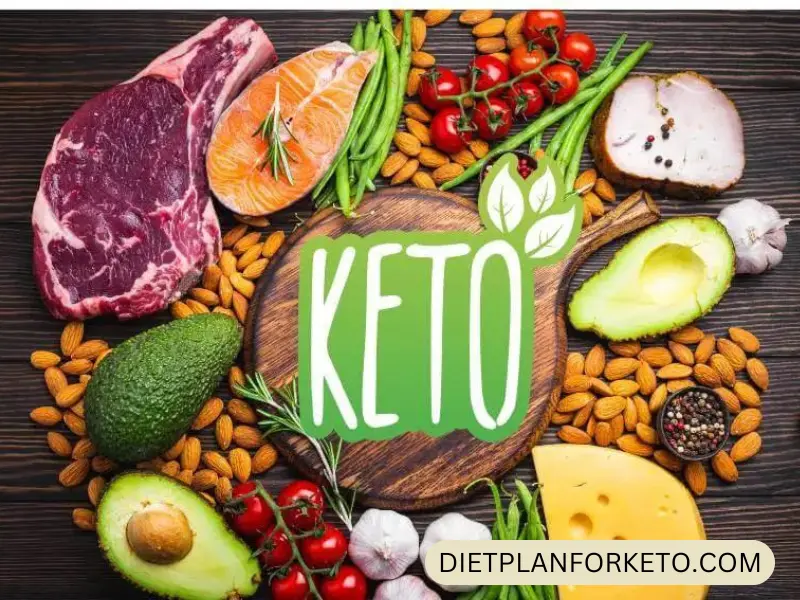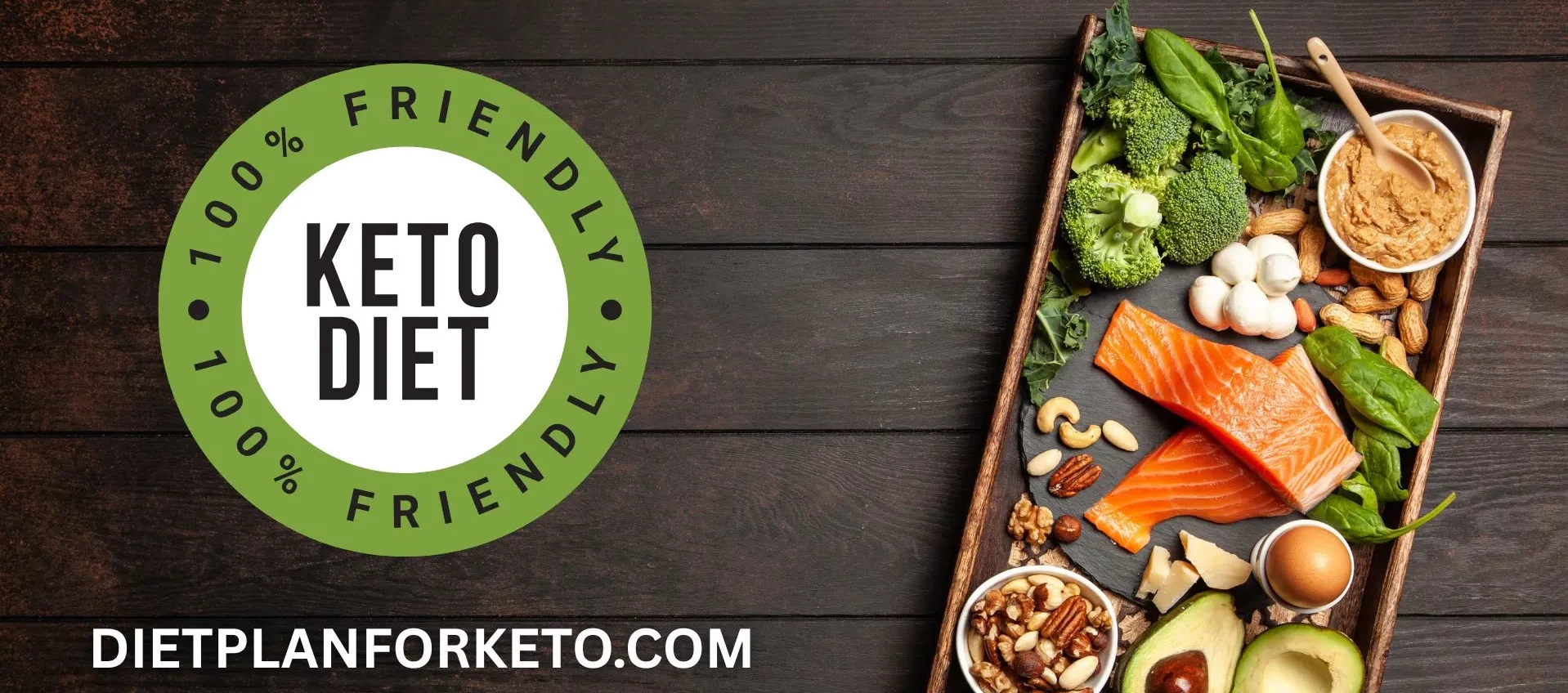The ketogenic diet, commonly known as keto, has surged in popularity due to its ability to promote weight loss, increase energy, and improve mental clarity. By drastically reducing carbohydrate intake and increasing fat consumption, the body is forced into a metabolic state called ketosis, where it burns fat for fuel instead of glucose. While the keto diet offers many benefits, it can also lead to some nutrient deficiencies or health challenges, especially for beginners.
This is where keto-friendly supplements come in. They help support your body through the transition to ketosis, ensure that you’re meeting your nutritional needs, and enhance your results on the diet. In this comprehensive guide, we will explore the best keto supplements to support your diet, why they’re essential, and how to incorporate them into your daily routine for optimal health and success.
1. The Importance of Supplements on a Keto Diet
When you cut out carbohydrates on a keto diet, you’re also eliminating many foods that are rich in essential vitamins and minerals. This can lead to nutrient imbalances that may affect your overall health, energy levels, and ability to stay in ketosis.
Here’s why keto-friendly supplements are important for those on a ketogenic diet:
- Electrolyte Imbalance: One of the most common challenges of the keto diet is electrolyte depletion. As your body loses glycogen stores (which hold water), you also lose important electrolytes such as sodium, potassium, and magnesium. This can cause symptoms like fatigue, headaches, muscle cramps, and the dreaded “keto flu.”
- Nutrient Deficiencies: Many of the carbohydrates you cut out on keto (such as fruits, legumes, and grains) are high in essential nutrients like fiber, B vitamins, and omega-3s. Without these, you might miss out on key nutrients unless you supplement effectively.
- Digestive Issues: A sudden increase in dietary fats can be difficult for some people to digest. You might experience bloating, constipation, or other digestive problems as your body adjusts to your new eating pattern.
Supplements can bridge these gaps, ensuring that your body has everything it needs to thrive on the keto diet. Whether it’s enhancing your energy, improving digestion, or maintaining muscle mass, supplements play a key role in optimizing your keto journey.
2. Key Benefits of Using Keto-Friendly Supplements
Keto-friendly supplements provide a wide range of benefits that go beyond just preventing nutrient deficiencies. They can significantly enhance your overall experience on keto and help you achieve your goals faster and more comfortably. Here are some of the top benefits:
- Boosted Energy Levels: One of the challenges of keto is the initial drop in energy as your body switches from using carbs to fat for fuel. Supplements like MCT oil and exogenous ketones help boost your energy by providing quick and efficient fuel sources that your body can use immediately.
- Mental Clarity and Focus: The brain prefers glucose for fuel, so when you first start keto, you might experience “brain fog.” However, once in ketosis, your brain can efficiently use ketones. Supplements like MCT oil and omega-3 fatty acids support cognitive function, helping you feel sharp and focused.
- Support During Keto Flu: Electrolyte imbalance is one of the main causes of the keto flu. Electrolyte supplements help restore balance and prevent the uncomfortable symptoms of the keto flu, such as headaches, fatigue, and muscle cramps.
- Improved Digestion: Keto can sometimes be tough on your digestive system, especially if you’re not used to consuming large amounts of fat. Digestive enzyme supplements can help break down fats and proteins, reducing bloating and discomfort.
- Muscle Maintenance and Recovery: If you’re working out on keto, you may need additional support to maintain muscle mass and recover after exercise. Supplements like collagen and branched-chain amino acids (BCAAs) are excellent for muscle recovery and overall joint health.
3. Essential Keto Supplements
There are several keto-friendly supplements that can significantly enhance your keto experience. Below is a list of the most important supplements and their benefits.
3.1 Electrolytes (Sodium, Potassium, Magnesium)
Why They’re Important:
On a keto diet, your body excretes more water and, along with it, essential electrolytes. Electrolytes regulate vital functions like muscle contractions, fluid balance, and nerve signaling. Low levels of sodium, potassium, or magnesium can lead to symptoms like headaches, fatigue, and muscle cramps.

Best Sources:
- Sodium: Found in salt, bone broth, and keto-friendly electrolyte powders.
- Potassium: Found in leafy greens, avocados, and supplements.
- Magnesium: Found in nuts, seeds, and keto-friendly magnesium supplements.
Why They Help:
Replenishing electrolytes prevents dehydration and keeps your muscles and nervous system functioning properly, reducing the risk of the keto flu.
3.2 MCT Oil
Why It’s Important:
MCT (medium-chain triglycerides) oil is a fat that your body can rapidly convert into ketones, making it an excellent energy source on a keto diet. MCT oil is particularly beneficial for those looking to increase their fat intake without overeating.
Best Sources:
- Pure MCT oil or MCT oil powders.
- Blended into keto-friendly coffee, smoothies, or taken straight.
Why It Helps:
MCT oil provides an immediate energy source that can boost ketone production, enhance mental clarity, and improve athletic performance.
3.3 Exogenous Ketones
Why They’re Important:
Exogenous ketones are ketones that you consume in supplement form. They help raise your blood ketone levels, providing a quick source of energy and helping you enter or maintain ketosis more easily.
Best Sources:
- Ketone salts or ketone esters in powder or capsule form.
Why They Help:
Exogenous ketones can be especially useful during the transition phase into ketosis, as they help alleviate symptoms of keto flu and provide sustained energy. They’re also great for boosting performance during workouts or long days.
3.4 Digestive Enzymes
Why They’re Important:
The keto diet involves consuming more fats and proteins than most people are used to, which can put stress on your digestive system. Digestive enzymes help break down these macronutrients and improve nutrient absorption.
Best Sources:
- Keto-specific digestive enzyme blends that target fat digestion (lipase) and protein digestion (protease).
Why They Help:
Digestive enzyme supplements prevent bloating, indigestion, and discomfort by helping your body efficiently process high-fat meals.
3.5 Collagen
Why It’s Important:
Collagen is a protein that supports healthy skin, hair, nails, and joints. While not a direct keto supplement, it is beneficial for anyone on a low-carb diet because it provides essential amino acids that are often missing.
Best Sources:
- Hydrolyzed collagen peptides in powder form.
- Bone broth or collagen capsules.
Why It Helps:
Collagen helps with joint support, muscle recovery, and skin elasticity, all of which can be particularly beneficial when you’re losing weight or exercising on keto.
3.6 Omega-3 Fatty Acids
Why They’re Important:
The keto diet can skew the balance between omega-3 and omega-6 fatty acids, leading to increased inflammation. Omega-3s are crucial for reducing inflammation and supporting heart and brain health.
Best Sources:
- Fish oil or krill oil supplements.
- Fatty fish like salmon or mackerel.
Why They Help:
Supplementing with omega-3s helps balance your omega-3 to omega-6 ratio, promoting overall health and reducing inflammation.
3.7 Fiber Supplements
Why They’re Important:
Many keto-friendly foods are low in fiber, which can lead to digestive issues like constipation. Fiber supplements help maintain regularity and support gut health.
Best Sources:
- Psyllium husk, flaxseed meal, or keto-friendly fiber powders.
Why They Help:
Fiber supplements ensure you get enough dietary fiber on keto, which promotes healthy digestion and prevents constipation.
3.8 Multivitamins
Why They’re Important:
Even with careful planning, it can be challenging to get all the vitamins and minerals you need from a keto diet alone. A multivitamin ensures you’re meeting your micronutrient requirements.
Best Sources:
- Multivitamins designed for low-carb or keto dieters, without added sugars or fillers.
Why They Help:
Multivitamins fill in any gaps in your nutrition, ensuring you get enough vitamins and minerals, especially during the early stages of keto.
3.9 Probiotics
Why They’re Important:
The keto diet can alter your gut microbiome, and a lack of fiber can disrupt digestion. Probiotics help maintain a healthy balance of gut bacteria, supporting digestion and immune health.
Best Sources:
- Probiotic capsules or fermented foods like kimchi, sauerkraut, and kefir.
Why They Help:
Probiotics improve digestion, enhance nutrient absorption, and support immune function by promoting a healthy gut microbiome.
4. How to Choose the Right Keto Supplements for You
Choosing the right supplements can be overwhelming, especially with so many options on the market. Here are some tips to help you make the best decisions:
- Assess Your Needs: Start by identifying the areas where you need support. Are you experiencing keto flu? Are you looking for an energy boost or improved digestion? Tailor your supplements to your specific needs.
- Check Ingredients: Make sure your supplements are free from hidden carbs, sugars, or unnecessary fillers. Look for clean, high-quality products that are specifically designed for a low-carb or keto lifestyle.
- Start Small: Begin with the essentials, like electrolytes and MCT oil, and gradually add other supplements based on how your body responds.
5. How to Incorporate Keto-Friendly Supplements into Your Routine
Once you’ve selected your supplements, it’s important to know when and how to take them for maximum effectiveness:
- Morning: Start your day with MCT oil in your coffee or smoothie to boost energy and mental clarity.
- Throughout the Day: Take electrolyte supplements as needed, especially if you’re sweating a lot or experiencing symptoms of keto flu.
- Pre/Post-Workout: Use exogenous ketones or BCAAs to enhance your workout performance and speed up recovery.
- Before Bed: Consider taking magnesium to promote relaxation and better sleep.
By spreading your supplements throughout the day, you’ll ensure consistent support for your keto diet.
6. Potential Side Effects and How to Avoid Them
While supplements can greatly enhance your keto experience, some may come with side effects, especially if taken in excessive amounts. Here’s how to avoid common issues:
- Digestive Discomfort: MCT oil can cause stomach upset if taken in large quantities. Start with a small dose and gradually increase.
- Electrolyte Imbalance: Over-supplementing with sodium or potassium can lead to bloating or discomfort. Stick to recommended doses.
If you experience any negative side effects, consider adjusting the dosage or switching to a different brand or type of supplement.
Conclusion
The best keto supplements to support your diet can make all the difference in achieving long-term success on keto. From boosting energy and mental clarity to supporting digestion and muscle recovery, these supplements help you feel your best while in ketosis. By incorporating keto-friendly supplements like electrolytes, MCT oil, and collagen, you’ll be better equipped to overcome challenges and thrive on your keto journey.
Remember, supplements are not a replacement for a well-balanced keto diet but an enhancement to help you meet your health goals more effectively. With the right support, you can enjoy all the benefits of the ketogenic lifestyle with ease and confidence!
